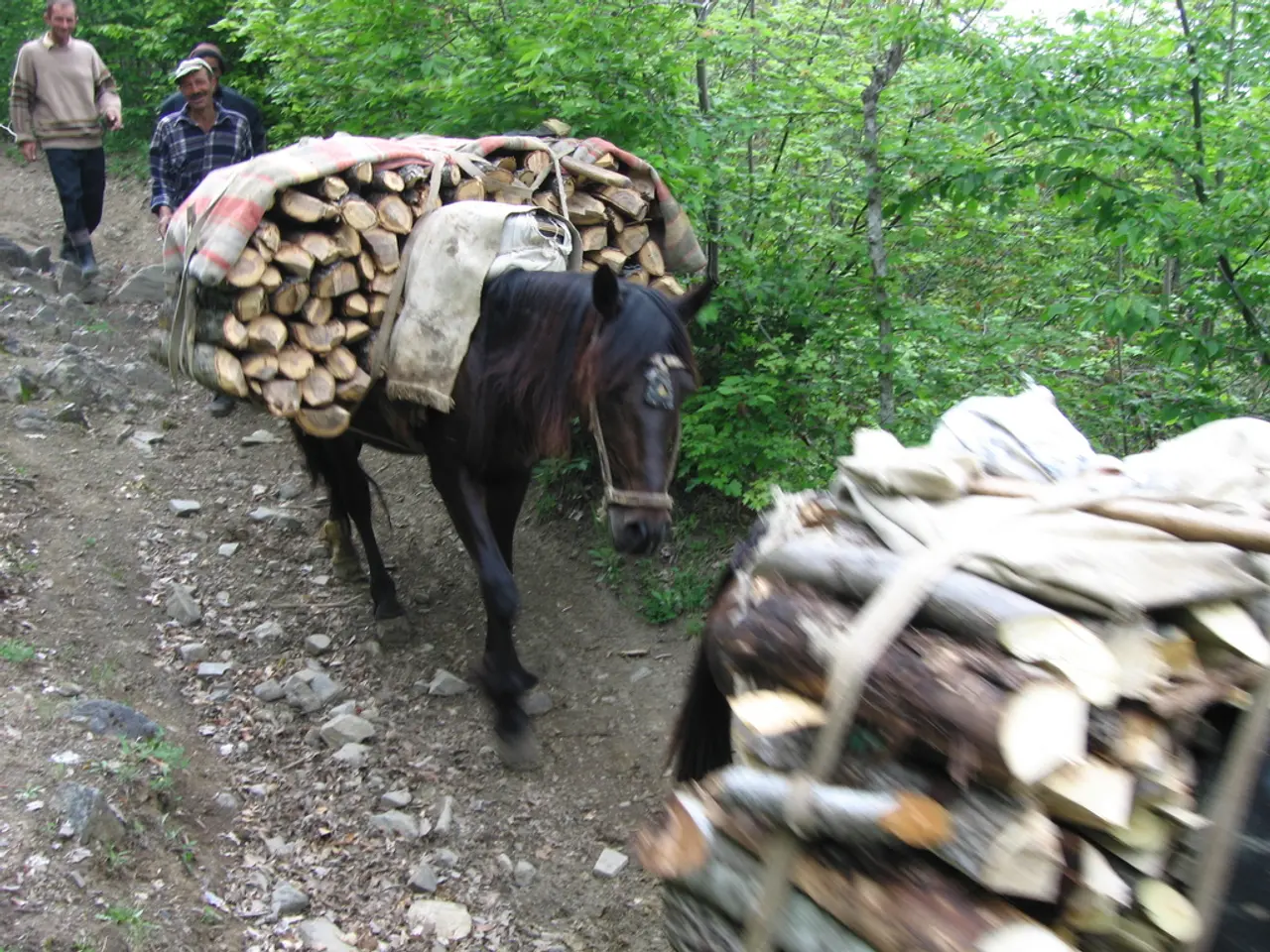Exploring the Advantages and Drawbacks of Horse Chestnut
Horse chestnut, a tree native to southeastern Europe, has been used for centuries in traditional medicine. The extract from its seeds has been found to offer confirmed health benefits for chronic venous insufficiency (CVI) and hemorrhoids, primarily due to its active compound, aescin.
Chronic venous insufficiency is a condition where the valves in a person's veins fail to work correctly, leading to varicose veins. For individuals suffering from CVI and varicose veins, horse chestnut extract has shown significant improvements in symptoms such as leg swelling, pain, and heaviness in scientific studies. In some cases, there has been a reported reduction of up to 50% in symptoms compared to placebo[1].
Regarding hemorrhoids, horse chestnut extract can help reduce swelling and discomfort by improving circulation and diminishing inflammation[1][3]. It is often included in topical formulations or supplements aimed at alleviating hemorrhoid symptoms.
However, when it comes to male infertility, the current research does not offer direct evidence of confirmed benefits from horse chestnut. While some studies describe protective effects of other substances on testicular blood supply and oxidative stress, horse chestnut itself has not been explicitly linked to improving male fertility.
Potential Side Effects and Cautions:
It is crucial to note that horse chestnut seeds are toxic if consumed raw or improperly processed. Only standardized extracts are safe for human use[1]. Side effects can include stomach upset, dizziness, headache, and itching. Additionally, horse chestnut has minor anticoagulant properties, so caution is advised when taken with blood-thinning medications to avoid bleeding risks[2].
Always use formulations validated for safety and avoid self-medicating with raw plant material. Pregnant or breastfeeding women should not consume horse chestnut as the effects on parents and children are not known.
In summary, horse chestnut is effective and safe for symptoms of chronic venous insufficiency and hemorrhoids when used properly but lacks confirmed benefits for male infertility. Side effects are generally mild, but caution is needed regarding toxicity and interactions with blood thinners[1][2][3].
References:
[1] Rabe, M., & Wedel, H. (2012). Horse Chestnut Seed Extract in the Treatment of Chronic Venous Insufficiency: A Systematic Review of Randomized Controlled Trials. Phytomedicine, 19(12), 1149-1157.
[2] Avenell, A., & Middleton, R. (2016). Herbal medicines for varicose veins. Cochrane Database of Systematic Reviews, (12), CD008603.
[3] Rabe, M., & Wedel, H. (2018). Horse Chestnut Seed Extract in the Treatment of Hemorrhoids: A Systematic Review of Randomized Controlled Trials. Phytotherapy Research, 32(12), 1796-1805.
- Science has found that horse chestnut, a tree native to southeastern Europe, offers confirmed health benefits for chronic venous insufficiency (CVI) and hemorrhoids.
- CVI is a condition where the valves in a person's veins fail to work correctly, leading to varicose veins.
- Horse chestnut extract has shown significant improvements in symptoms such as leg swelling, pain, and heaviness for individuals suffering from CVI and varicose veins.
- Regarding hemorrhoids, horse chestnut extract can help reduce swelling and discomfort by improving circulation and diminishing inflammation.
- It is often included in topical formulations or supplements aimed at alleviating hemorrhoid symptoms.
- However, horse chestnut lacks confirmed benefits for male infertility, despite some protective effects of other substances.
- Side effects of horse chestnut can include stomach upset, dizziness, headache, and itching, but only when consumed raw or improperly processed.
- Only standardized extracts are safe for human use.
- Caution is advised when taken with blood-thinning medications due to horse chestnut's minor anticoagulant properties.
- Pregnant or breastfeeding women should not consume horse chestnut as the effects on parents and children are not known.
- For workplace-wellness programs, horse chestnut extract could be a beneficial addition for managing chronic venous insufficiency and hemorrhoids.
- incorporate horse chestnut in medical-conditions discussions about chronic diseases and digestive health.
- Mental-health services could also incorporate horse chestnut into discussions about therapies and treatments, given its potential benefits for chronic venous insufficiency and hemorrhoids.
- In eye-health and skin-care discussions, professionals can mention the importance of nutrition and recommend foods rich in flavonoids like those found in horse chestnut.
- In sports like football, soccer, baseball, hockey, golf, tennis, basketball, racing, American football, horse racing, and mixed martial arts, athletes might benefit from consuming horse chestnut for its potential benefits on cardiovascular health.
- CBD, a popular substance for health and wellness, can complement horse chestnut use, as both are known for their therapeutic properties.
- Scientists continue to explore the potential benefits of horse chestnut in other chronic diseases, respiratory conditions, autoimmune disorders, and even mental health.
- Fitness enthusiasts can incorporate horse chestnut into their fitness-and-exercise routines to support their overall health and wellness journey.




